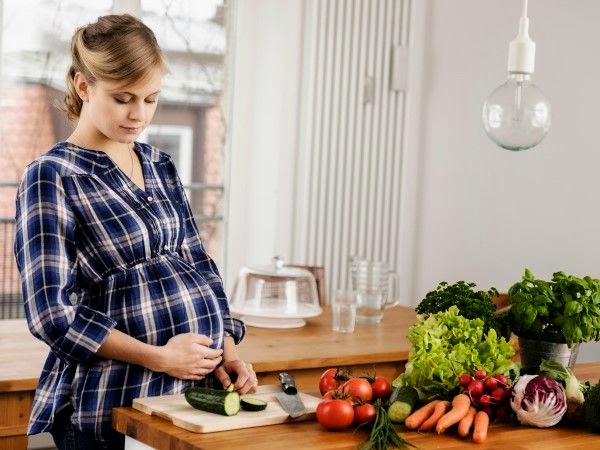Take Care:
Generally, a baby’s health and development is
determined by the mother’s health and diet. Proper nutrition during pregnancy is very important for the growth
and good health of the baby. To avoid the complications during pregnancy,
mothers need to eat well and exercise regularly. As a result, you would give
birth to a happy and healthy baby. Normal birth-weight, increasing fetal brain
development and reduced risks of birth defects are all directly linked to proper nutrition during pregnancy.
During pregnancy, ‘eat healthy’ should be your motto as this gets you healthy
which in return makes your baby healthy. If you are in a dilemma of what to eat
and what not to eat, come let’s discuss some tips for maintaining proper nutrition during pregnancy.
Proper nutrition
during pregnancy:
The conception and the subsequent weeks afterwards is the
most crucial time when the organs and systems of the baby develop within. A lot
of energy is required for this development of the baby which comes from the
energy and nutrients in the mother’s circulation and around the lining of the
womb. This is why it is very important for mother’s to take care of their
health and maintain proper nutrition
during pregnancy. The placenta is not formed during the early stages of
pregnancy. So to protect the embryo from the deficiencies inherent in the
mother’s circulation, an adequate amount of nutrients and energy is essential
to be consumed. This consumption of nutrients can effectively prevent nausea,
vomiting and cramps.
You need to eat foods rich in folic acid, such as oranges,
green leafy vegetables, peanuts, beets, etc. to prevent neural tube birth
defects in the baby. To ensure adequate oxygen for the baby, prevent anemia and
also build resistance to stress and disease, a mother needs to consume iron
rich products like grain products, green leafy vegetables, lean beef and pork,
sardines, dried fruit and beans. To create a healthy baby, its necessary for a
mother to intake prenatal vitamins as well which contain folic acid, iodine,
iron, vitamin A, vitamin D, zinc and calcium. 1200mg of calcium is recommended
for pregnant women per day which you can get from milk, cheese, pudding,
yoghurt, salmon, broccoli, beans, and a calcium-enriched orange juice. Other
than these, 10g of protein per day is another essential element. Protein
sources include soy milk, cereals, seeds, meats, milk, and eggs. For baby as
well as mother’s proper brain and nerve function, mothers also need to include
vitamin B12 rich animal and soy products in their diet.
Avoiding the harmful:
To reduce the risk towards the development of the fetus,
exposure to some substances needs to be avoided which includes food pathogens,
toxic food components, canned food, alcohol, smoking, refrigerated products,
uncooked fish, etc. Make sure pregnant women reheat ready-made food products
thoroughly and also wash their fruits and vegetables thoroughly to avoid any
risks. To improve maternal metabolism and prevent adverse outcomes,
modification of lifestyle is an effective strategy. Maternal obesity can have
significant impact on maternal metabolism and offspring development as it
disrupts insulin resistance, fat oxidation and amino acid synthesis. Also,
studies show that alcohol consumption can lead to fetal alcohol syndrome. Due
to many unknown effects of even small amounts of alcohol consumption on
pregnancy, mothers are advised not to consume even a little amount of alcohol.








.jpg)
0 comments:
Post a Comment